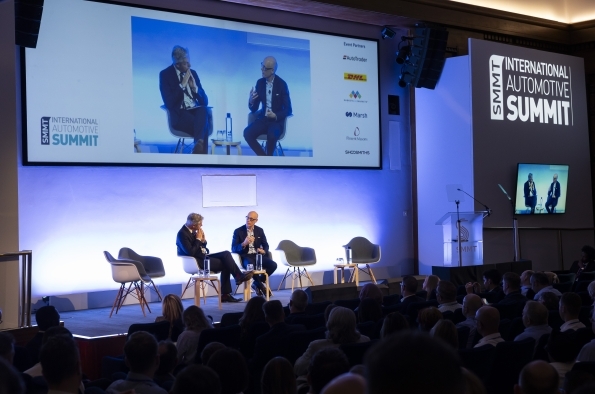Michael Leiters, CEO of McLaren Automotive, has called for the United Kingdom to position itself as a “centre of excellence” for electric vehicle (EV) supercar technology. Leiters believes that by leveraging its rich heritage in high-performance automotive manufacturing and elite motorsport, the UK can seize a significant opportunity to lead the global electrification of supercar production.
The McLaren chief emphasises the critical need for strategic investment in the domestic supply chain to meet the unique and demanding performance requirements of electric supercars. He argues that the UK’s current supply chain infrastructure is not adequately equipped to support the production of these high-performance electric vehicles, highlighting a gap that needs to be addressed urgently.
Leiters is advocating for a clear industrial strategy from the UK government to drive investment in future powertrain technologies. He believes that such a strategy, focused on developing the domestic supply chain, would not only stimulate economic growth and support job creation but also contribute to the decarbonisation of the economy while securing a vibrant future for the UK’s performance car industry.
The UK’s automotive pedigree is undeniable. Once the world’s largest vehicle exporter, the country still hosts some of the most prestigious performance car brands and the majority of Formula 1 racing teams. Leiters sees this as a strong foundation upon which to build a global, high-performance centre of excellence for EV technology.
One of the key arguments put forward by Leiters is the significant pricing power commanded by UK-based luxury and sports car brands. With their rich histories and class-leading performance attributes, these brands offer an excellent return on investment for taxpayers. He points out that more than 90% of McLaren supercars are exported, underlining the sector’s potential for generating foreign revenue.
However, the transition to electrification is not without its challenges. The high costs involved, particularly for low-volume, specialised suppliers, make government support crucial in mitigating risks. Leiters acknowledges that customer demand for electric supercars remains low due to current technological limitations. Nevertheless, he sees potential in investing in next-generation, high-power-dense battery cell manufacturing to position the UK at the forefront of future performance car powertrain technology.
The importance of locally sourced high-performance battery technology is underscored by EU ‘rules of origin’ requirements on exported vehicles. Leiters reveals that while the hybrid McLaren Artura powertrain has 64% UK content, this would plummet to just 13% if the car were a pure EV, due to the lack of relevant componentry in the UK.
Historically, the luxury and high-performance market has been a driving force for technological innovation in the automotive industry. Leiters cites the McLaren P1 as a prime example, demonstrating the capability of high-performance hybrid technology before the mainstream adoption of electrification. He suggests that developing a pure EV McLaren supercar capable of rivalling the performance and driver engagement of today’s supercars could encourage a broader transition to full electrification.
The benefits of attracting the right battery suppliers to the UK extend beyond the automotive sector. Leiters envisions a thriving UK supply chain specialising in cutting-edge, high-energy-density cells that could support not only supercar production but also other advanced manufacturing needs such as vertical take-off aircraft and drones.



